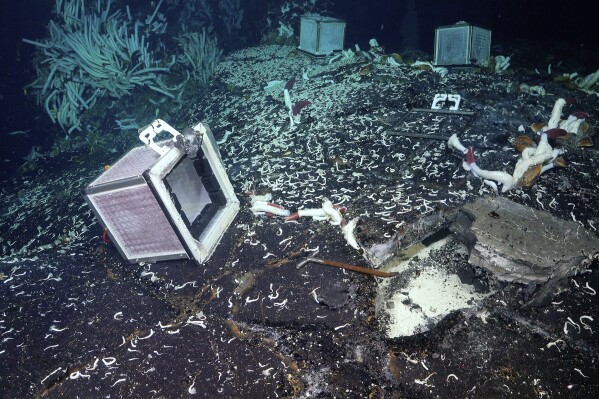Floridians have been warned that Milton's floodwaters could be hiding an unexpected reptilian danger.
Hurricane Milton hit Florida's western coast last week as a Category 3 hurricane with 120-mile-per-hour sustained winds. It brought up to 10 feet of storm surge and intense rainfall, reaching 18 inches in some places.
At least 23 people died during the storm, and the flash floods that resulted from this tempest caused catastrophic damage across the state. Now, the Florida Fish and Wildlife Conservation Commission has warned that the floodwaters may contain alligators or other creatures.
"Alligators may be observed more frequently in flooded areas after a hurricane or tropical storm. As with all wildlife, treat alligators with respect, keep them at a distance and give them space," the FWC warned.
The animals roaming around the flooded areas may vary based on your proximity to the coast.
"If you're coastal, you have to worry about everything from stingrays to alligators. If you're in South Florida, you gotta think about crocodiles, snakes," Frank Robb, the founder of the nonprofit environmental education group Environmental Education Awareness Research Support and Services (EEARSS), told NewsNation in a live interview on Thursday.
However, Robb said that "common sense" would likely keep most people safe.
"Obviously, if it's not water you can see through, you probably shouldn't be wading through it," he said.
Robb advises anyone traveling through floodwaters to use a walking stick or something else to feel their way through the water.
"Something to put in front of you to feel where you're going," said Robb. "A lot of times, just a little bit of common sense fixes a lot of things."
Several people have posted videos of alligators lurking in the floodwaters to social media. Florida has one of the largest populations of alligators in the U.S. due to its warm climate and abundant wetlands, and is home to an estimated 1.3 million of the reptiles.
Alligators may not be the only reptiles out and about after the hurricane. According to the FWC, "You are more likely to see snakes with higher water levels post-storm."
The FWC advises that the snakes are likely to be scared of you and will not be aggressive unless they feel threatened.
"To avoid snake bites, leave snakes alone, stay out of tall grass unless you wear thick boots, and keep hands and feet out of areas you can't see," the FWC said.
Do you have a tip on a science story that Newsweek should be covering? Do you have a question about alligators? Let us know via science@newsweek.com.
Disclaimer: The copyright of this article belongs to the original author. Reposting this article is solely for the purpose of information dissemination and does not constitute any investment advice. If there is any infringement, please contact us immediately. We will make corrections or deletions as necessary. Thank you.



